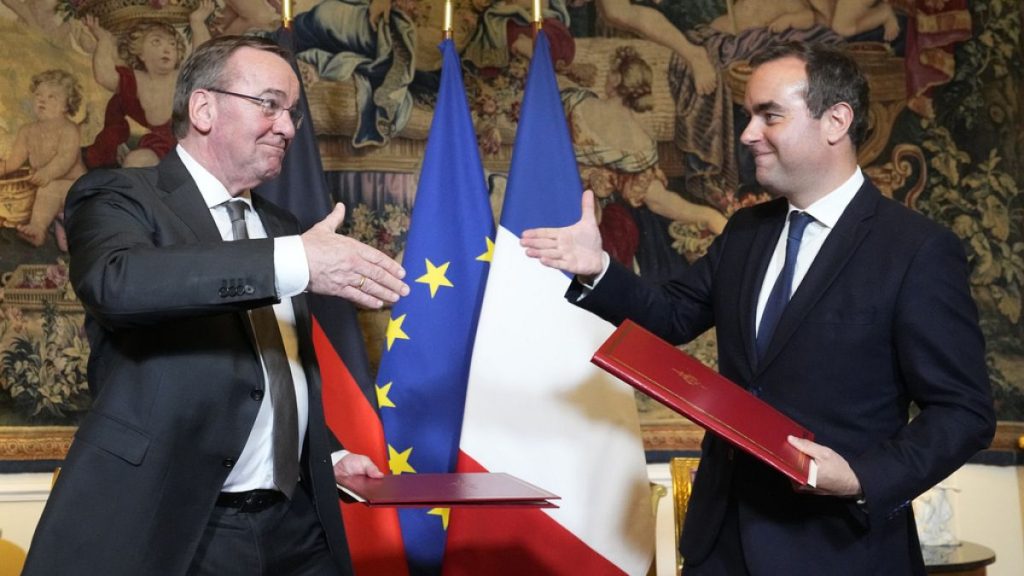France and Germany have recently come together to finalize an agreement on a new joint tank project called the Main Ground Combat System (MGCS). This project is set to develop a next-generation battle tank that will replace Germany’s Leopard 2 tank and France’s Leclerc. The tank is expected to incorporate artificial intelligence and certain automated systems that do not require human pilots. The manufacturers for the project are expected to be finalized by the end of the year, with a target completion date of 2040. This project is an ambitious endeavor that highlights Europe’s efforts to expand its defense industry in response to increasing military technology from other countries such as India and China.
The distribution of the MGCS deal will see Germany leading the development of the tank, while France will take the lead in developing the next-generation fighter jet, FCAS, as well as drone systems. The two countries will share the cost of the new tank equally. Companies such as KNDS, Rheinmetall, and Thales are expected to be involved in the construction of the MGCS. Despite initial disagreements and political tensions between France and Germany on various topics, the defense ministers reassured the public that the common agreement on the tank project is a sign of mutual trust between the two countries, especially in the current geopolitical context.
The collaboration between France and Germany on the MGCS project is a significant step in strengthening the defense capabilities of both countries. The development of a next-generation battle tank with advanced technologies such as artificial intelligence and automated systems reflects the increasing focus on innovation in military technology. By working together on projects like the MGCS, European countries are attempting to stay competitive in the global defense industry landscape. The joint tank project also aligns with efforts to modernize and upgrade defense systems to address evolving security challenges in the region and beyond.
The MGCS deal between France and Germany comes as the second major arms industry project between the two European powers, following the development of the FCAS next-generation fighter jet. The collaboration on these projects demonstrates a concerted effort to strengthen defense cooperation and capabilities within Europe. Germany leading the development of the tank project while France takes the lead on other defense initiatives ensures a balanced and coordinated approach to enhancing defense systems. Despite challenges and disagreements that may have arisen during the planning stages of the project, the commitment to moving forward with the MGCS is a testament to the strong partnership and trust between France and Germany in the realm of defense.
The completion of the MGCS project is expected to have a significant impact on the defense industry in Europe and beyond. The development of a next-generation battle tank with advanced features and technologies will set a new standard for military capabilities. By incorporating artificial intelligence and automated systems, the tank of the future will revolutionize traditional combat vehicles. The distribution of contracts to manufacturers and the shared cost between France and Germany signify a joint commitment to achieving the goals of the project. This collaborative effort reflects a broader trend of European countries working together to strengthen defense capabilities and address emerging security challenges in an evolving geopolitical landscape.
In conclusion, the MGCS deal between France and Germany marks a significant milestone in defense cooperation between the two countries. The development of a next-generation battle tank with advanced technologies highlights the commitment to innovation and modernization in the defense industry. Through joint projects like the MGCS, France and Germany are working together to enhance defense capabilities, compete globally, and address evolving security challenges. The agreement on the tank project demonstrates a shared vision and trust between the two countries, despite past disagreements, and underscores the importance of strategic defense partnerships in today’s geopolitical context.


